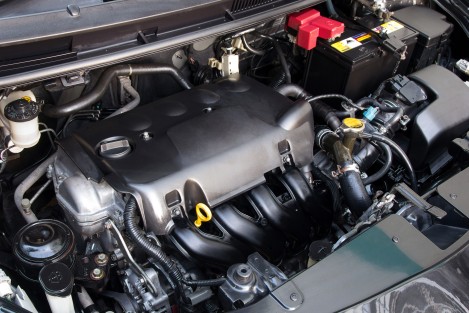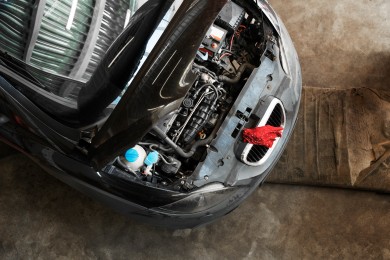Having trouble with your car battery not holding a charge can be frustrating and stressful. If your car battery isn’t charging properly or seems to lose power quickly, it could be a sign of an underlying issue. In this article, we’ll explore common reasons why your car battery may not be holding a charge and offer helpful tips on how to address the issue.
Common Causes of a Car Battery Not Holding a Charge
Faulty Alternator
A faulty alternator is one of the most common reasons a car battery fails to hold a charge. The alternator is responsible for recharging the battery while the engine is running and supplying power to the vehicle’s electrical systems. If the alternator is malfunctioning, it may not generate enough electricity to keep the battery charged, causing the battery to drain even while driving.
Old or Worn-Out Battery
A common reason why a car battery won’t hold a charge is simply because it’s old. Most car batteries last about 3 to 5 years, depending on how much you use the car, the weather, and how well it’s maintained.
Corroded Battery Terminals
Corrosion happens when acid from the battery reacts with the metal terminals, creating a white, blue, or green powdery substance. This buildup can block the electrical connection, making it harder for the battery to charge or power the car properly.
Parasitic Drain
This happens when parts of your car keep using power even when the car is turned off. It could be due to faulty wiring, a broken alternator, or electrical devices like a GPS, radio, or alarm system that don’t turn off properly. Over time, this constant power drain can make the battery lose charge faster than it can recharge, leaving you with a dead battery.
Extreme Weather Conditions
In cold weather, the battery’s chemical reactions slow down, making it harder for the battery to produce power. This is especially true if the battery is old or in bad condition. In freezing temperatures, the battery’s liquid can even freeze, causing internal damage. On the other hand, hot weather can also shorten a battery’s life. High heat can make the battery fluid evaporate, damaging the internal parts and reducing its capacity.
Poor Battery Maintenance
If the charger isn’t working correctly, it might not provide the right voltage to recharge the battery, which means the battery can’t get a full charge. This can happen because of worn-out parts, electrical problems, or even incorrect charging methods. If the charger is giving inconsistent power or overcharging, it could damage the battery, making it unable to hold a charge over time.
Electrical System Problems
One reason that can stop the battery from charging properly or make it drain quickly is a problem with the car’s electrical system.
How to Fix a Car Battery That Won’t Hold a Charge
Testing the Battery and Alternator
First, use a multimeter to check the battery’s voltage. A healthy battery should read around 12.6 to 12.8 volts when the car is off. If it’s lower, the battery might be the problem. But, a simple voltage test doesn’t always tell the full story.
Next, check the alternator. The alternator charges the battery while the engine is running. With the car on, the battery’s voltage should go up to about 13.7 to 14.7 volts. If it stays under 12.6 volts, the alternator may not be charging the battery properly, and it might need to be replaced.
Replacing or Recharging the Battery
If your battery is old, not working well, or keeps losing its charge, replacing it is usually the best option. Before buying a new one, make sure to check your car’s specifications to get the right size and type. Some batteries can be recharged if they’re just low on power, but if the battery still doesn’t hold a charge after recharging, it’s probably time for a new one.
Checking and Cleaning Battery Terminals
Sometimes, the problem with your car’s battery isn’t the battery or alternator itself, but the battery connections. Over time, corrosion can build up on the battery terminals, making it hard for the battery to charge properly. Look for any white, powdery buildup on the terminals – that’s corrosion. To clean it, mix some baking soda and water, then scrub the terminals with a wire brush.
When to Seek Professional Help for Your Car Battery Charging Problem
If you’ve checked the battery and alternator but can’t figure out the problem, or if the issue continues after replacing them, it’s a good idea to visit a mechanic. They can run more detailed tests to check things like wiring, fuses, and connections, which might be causing the issue.
Contact Mr. Mechaniq for Expert Car Battery Solutions in Richmond Hill
If you’re having trouble with your car battery or charging system in Richmond Hill, Mr. Mechaniq is here to help. Whether your battery isn’t holding a charge, the alternator isn’t working right, or you have another electrical issue, our team is ready to figure out the problem and fix it quickly.
We use the latest tools to find out what’s causing your car’s charging issues. Whether you need a new battery, alternator repair, or something else, we offer reliable service you can count on. Don’t wait until you’re stuck—contact us today for expert car battery solutions in Richmond Hill!
How can I tell if my car battery needs replacing?
There are a few signs that your car battery might need to be replaced. If your car has trouble starting, makes a clicking sound, or the engine cranks slowly, it could be a sign of a weak battery. Also, if the battery’s voltage is under 12.6 volts or it fails a load test, it’s probably not holding a charge properly.
Can extreme cold weather cause my battery to lose charge?
Yes, cold weather can make it harder for your car battery to hold a charge. When it’s cold, the chemical reactions inside the battery slow down, making it less efficient.
Is it safe to drive with a battery that’s not holding charge?
Driving with a battery that won’t hold a charge can be dangerous. If the battery doesn’t stay charged, your car might stall or not start at all, leaving you stuck. A bad battery or alternator can also harm other parts of your car’s electrical system.

